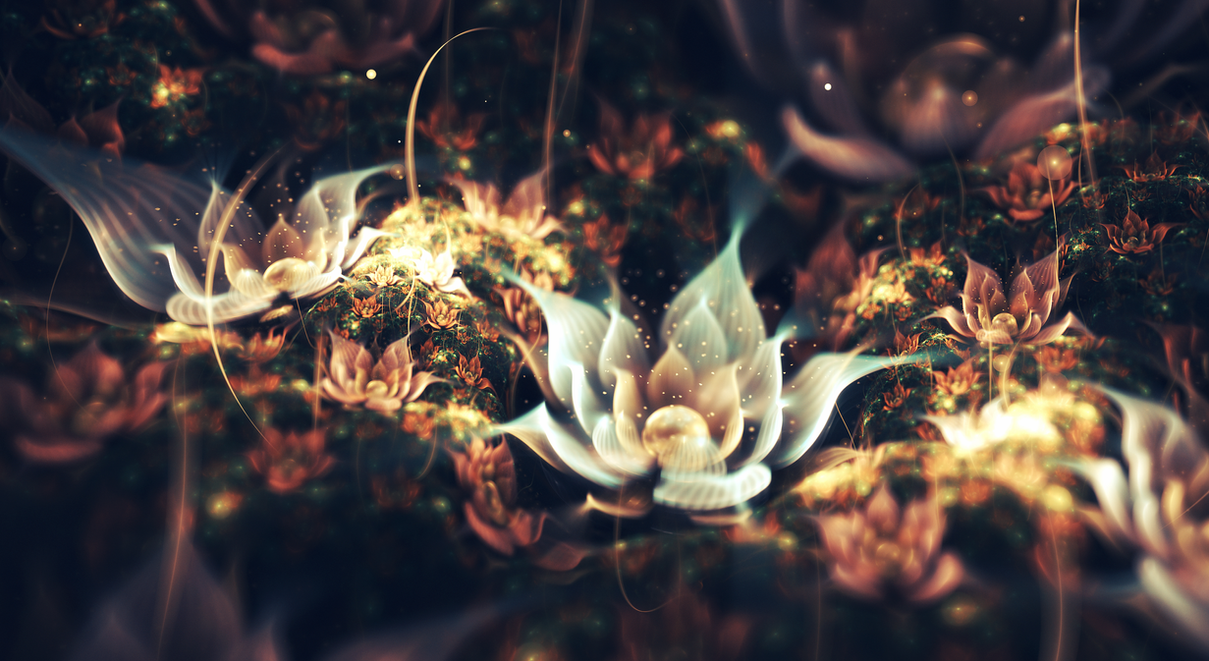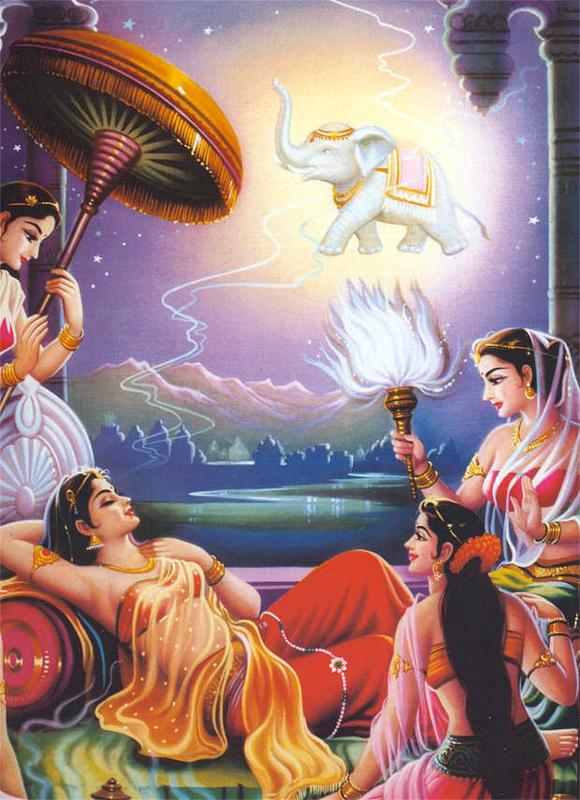A soft breeze. The blades of grass softly grazing his skin. The shadow of the bodhi tree casting a shadow over his body while protecting him from the harsh rays of sunlight around him.
Lotus art.
Siddhartha breathed in deeply and slowly through his nose. He noticed the scent of the air around him. The way the air traveled into his body. The way his chest rose and fell and with each breath he took. This was it. This was what he spent a large part of his life searching for: freedom from the suffering of the world. From the moment he became the Buddha, Siddhartha lived each day with splendor and compassion. He was a part of the world and at the same time, the world was a part of him.
He let his mind settle into quiet meditation and felt the rest of his body melt away as the physical senses were not important any longer. It was simply himself and his mind. But for some reason, this time it was different. Instead of casting complete stillness and silence over everything, his mind's eye was casting a faint light. Thinking nothing of it and willing it to melt away, Siddhartha continued to focus on his breathing. The light had no intention of fading away, and instead, it got even brighter. Brighter and brighter, still, it became until a scene appeared in front of him. It seems that he was looking in on something happening as an omnipotent presence.
He saw himself in the arms of his mother. Although he was still newly born, he knew that the baby in the arms of one of the most beautiful women in history was him. Inexplicable yet sure, he looked on. Somehow, the scene sped up and he was no longer a baby. He was a young boy, barely past the age of 10, running into the arms of his mother. His mother? What was she doing here? He was told she passed when he was barely a week old...
The scene sped up yet again, going further than it did before. The younger version of him was walking down the road where he remembered seeing the three men who helped realize the suffering in the world. Yet, the sick man was not there. The old man was not there and neither was the dead man. The roads were empty and void of people or any person who seemed to be suffering an ailments. Puzzled, Siddhartha looked at the younger him once again to see a young man who was simply happily strolling through his kingdom.
The next scene was his coronation as the next king. He saw his father look upon him with proud eyes. His mother was right by his side holding his hand. Somehow, what he was seeing did not make sense any longer. What was happening? Why was his mind showing him this story which made no sense and followed a completely different trajectory than what actually happened?
The final scene. He saw himself, as a 60-year-old man, crying next to a bed. Walking over to see who was on the bed, he saw his parents. The older him was in tears while holding the hand of his father, who had quite obviously passed away. His mother was sick in the other bed, hanging onto the last thread of life. He, himself, was suffering the aching bones and the hunched stature that came with old age.
Ah... Siddhartha came to a realization. If the gods had not forced him to see the true nature of life, this is the life he would have led. He would have lived to become a great king, but a king who had no idea what it meant to live life to its fullest potential and to fully understand that to live... is to suffer.
Author's note: So I was reading about the life of the Buddha this week for the class and I really enjoyed it. In the story, it was told that when the sheltered Siddhartha chose to venture outside of his kingdom to explore, the gods were jealous of his happiness and showed him the three most harsh types of suffering in life: sickness, old age, and death. It was through that experience that Siddhartha left his home and went on a journey to become the Buddha and to learn that everything in life is, in actuality, suffering. I wanted to write a story where Siddhartha was able to see what his life would have been like if he never went through that experience. I wanted to pose the scenery to be similar to what the Scrooge in The Christmas Carol was able to see what happens in the future--kind of like he was looking in on what would happen in a ghost-like yet omnipresent state. And so in the end of this story, Siddhartha realized that either way, he would have had to experienced all the suffering at the same time, but never have the chance or the time to fully process it and become the Buddha.
Title:
The Life of Buddha
Author: Andre Ferdinand Herold
Translator: Paul C. Blum
Year: 1922






.cover.jpg)









